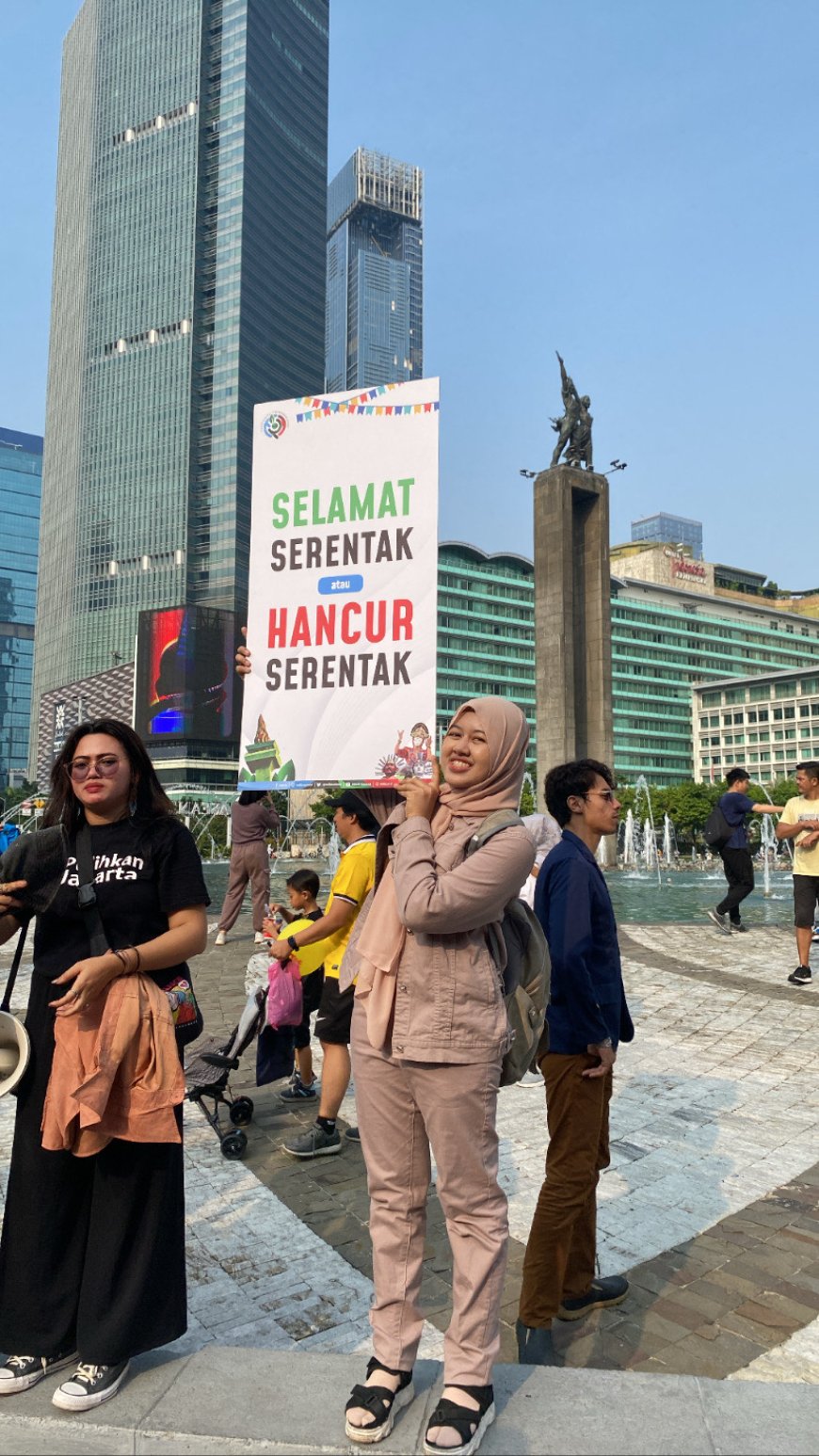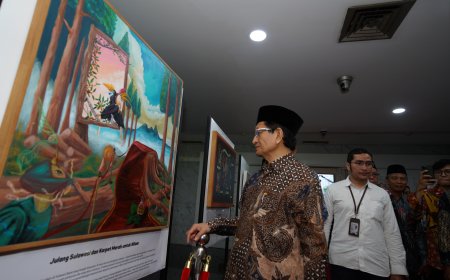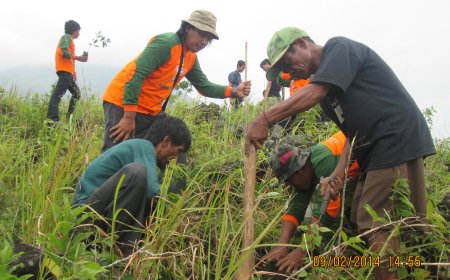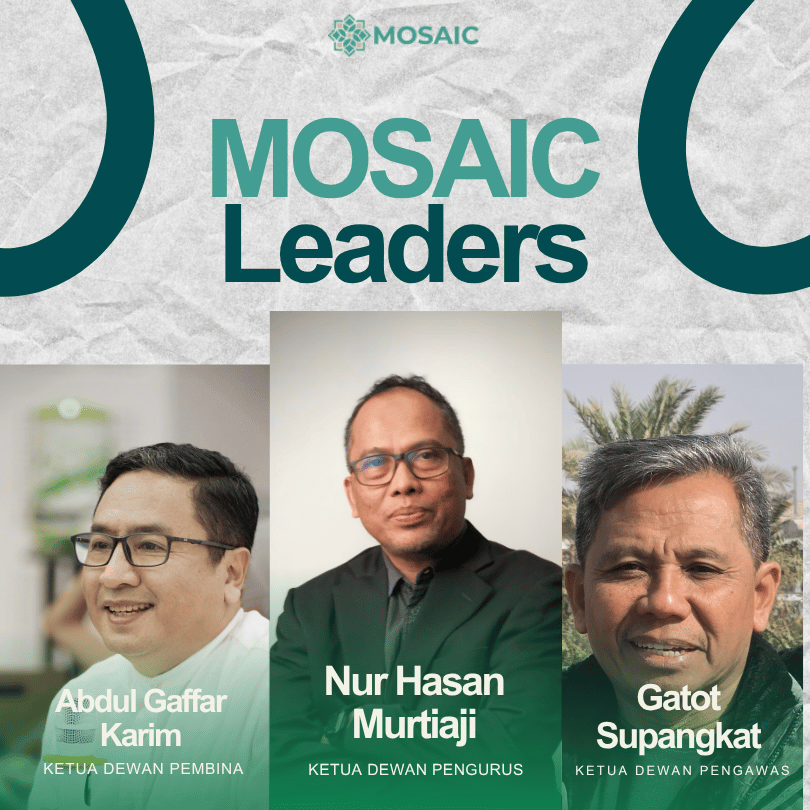Gen-Z wants President with climate vision
The Youth votes are very potential in this 2024 election

MOSAIC-INDONESIA.COM, JAKARTA -- Kholida Annisa has not been able to forget the massive flood event that hit Barabai, Hulu Sungai Tengah Regency, South Kalimantan, in 2021. He was trapped for three days as a result of the connecting bridge breaking up. Together with her six friends, Kholida became an impromptu disaster volunteer because many local young people had gone to help other villages.
With his own eyes, the 25-year-old witnessed the flooding of the Barabai River that made many people suffer. For almost a week, refugees had to wait in line for hours to get food. They were forced to stay overnight in tents in the cold air. To eat, residents had to line up in makeshift kitchens. In the meantime, the cars have to be tied up if they don't want to get carried away.
“Locals say the new age felt the flood. Never before. Information from residents because there is a mine there,” Kholida said during a conversation with MOSAIC some time ago.
This experience left Kholida devastated. He also determined that his hometown would not be flooded again. Kholida, who is an activist of the Muhammadiyah Student Association (IPM) in the field of environment, revealed that greening in the field is not enough. It needs policy from the government so that the development program also anticipates the impact of climate change.
According to Kholida, the momentum of the 2024 Presidential Election that is in front of us should be harnessed especially for voters like herself. He explained that young voters from Generation Z who have an age range of 17-24 should be the subject of the next election. “Let's not just be an object anymore because we are looking for leaders who are pro-climate,” he explained.
The Election Commission (KPU) noted that there are about 204 million permanent voter lists (DPT) for the 2024 general election. A total of 66.8 million (33.6 percent) are millennials or those born between 1980 and 1994. In addition, there are 46.8 million voters from Generation Z who were born in the 1995-2000s.
The large turnout of Generation Z was also considered to have bargaining power for the presidential election participants. To that end, Kholida initiated the mygreen leaders movement. This movement is the fruit of the Climate Hijrah Workshop, a real program that materialized from the action of the Collaboration of Muslims for Climate Impact (MOSAIC).
Through this initiative, Kholida organized meetings at 100 points in different regions involving more than 2000 students. From these meetings, Kholida and his comrades wanted to propose the criteria of a pro-climate leader to three pairs of presidential and vice presidential candidates. “Student friends encourage leaders who are pro-climate,” he said.
According to Kholida, Generation Z's environmental awareness is high. Only, such awareness is still in the individual stage. They still don't know what to do. In fact, government policies will have an effect on environmental damage. “That young person has to look systemically not just culturally,” he said.
The three pairs of presidential and vice presidential candidates who will compete in the 2024 presidential election have been designated by the General Election Commission (KPU). In its visions, they does have an environmental program.
Sequence number 1 pair, Anies Baswedan and Muhaimin Iskandar had eight missions about the environment.
In addition to implementing environmental governance, the couple, who is familiar with Amin, promotes the use of new renewable energy. In addition, the couple wants to reduce the rate of forest destruction, forest intake conservation, and reforestation/rehabilitation to maximize the role of forests as carbon sinks.
Prabowo Subianto and Gibran Rakabuming Raka, who are the number two pair, will pursue energy self-sufficiency to reduce dependence on fossil energy. The goal is to make Indonesia the world's green energy king (super power) in the field of renewable new energy and energy based on vegetable raw materials (bioenergy).
Meanwhile, the third pair, Ganjar Pranowo and Mahfud MD, carried out three fast-moving missions related to the environment, renewable new energy and ecological justice. The couple also discussed grassroots programs such as Kampung Sadar Klima and self-sufficient villages with new renewable energy. The pair also ushered in a sustainable blue economy
Chairman of the Institute for Conservation of Environment and Natural Resources of the Indonesian Ulema Assembly (MUI) Prof. Hayu Susilo Prabowo said that there are three issues that should be addressed by the candidates: water, food and energy. It follows from the Prophet (peace and blessings of Allaah be upon him): “Men are united in three things. Water, pasture and fire (H.R. Abu Dawud).
According to Hayu, these three factors are related. Water is related to food because agriculture requires 70-80 percent of all water consumption. The food we consume requires more than two pinches of the total water requirement.
Energy is also interrelated with water. Large amounts of water are needed to produce energy for the mining and processing of energy sources. Instead, large amounts of energy are needed to retrieve, move and manage drinking water and agricultural irrigation as well as wastewater management.
So with energy and food. Energy is an important factor for the production, transportation, storage, and processing of food. More than a quarter of the energy used globally is spent on food production and supply.
In addition, Hayu stressed, the track record of would-be leaders around climate programs should be of concern to younger generations. This is an important factor that shows the character and willingness of the candidates to carry out pro-climate programs.
Secretary of the Muhammadiyah Environment Assembly Gatot Supangkat said that although three candidates had already expressed visions of environmental missions, he reminded voters to pay attention to their track record both personally and as leaders. According to Gatot, all potential contestants are already experienced from the smallest scope even large scale.
It's just that, he revealed, Generation Z's understanding of environmental issues has not been good given that not many parties have communicated to them yet. To that end, he appealed to environmental activists to campaign in a language close to theirs. Thus, they are able to have the awareness to choose leaders who truly have a vision of the environment. “Now there is social media. It can be optimized,” he said.







